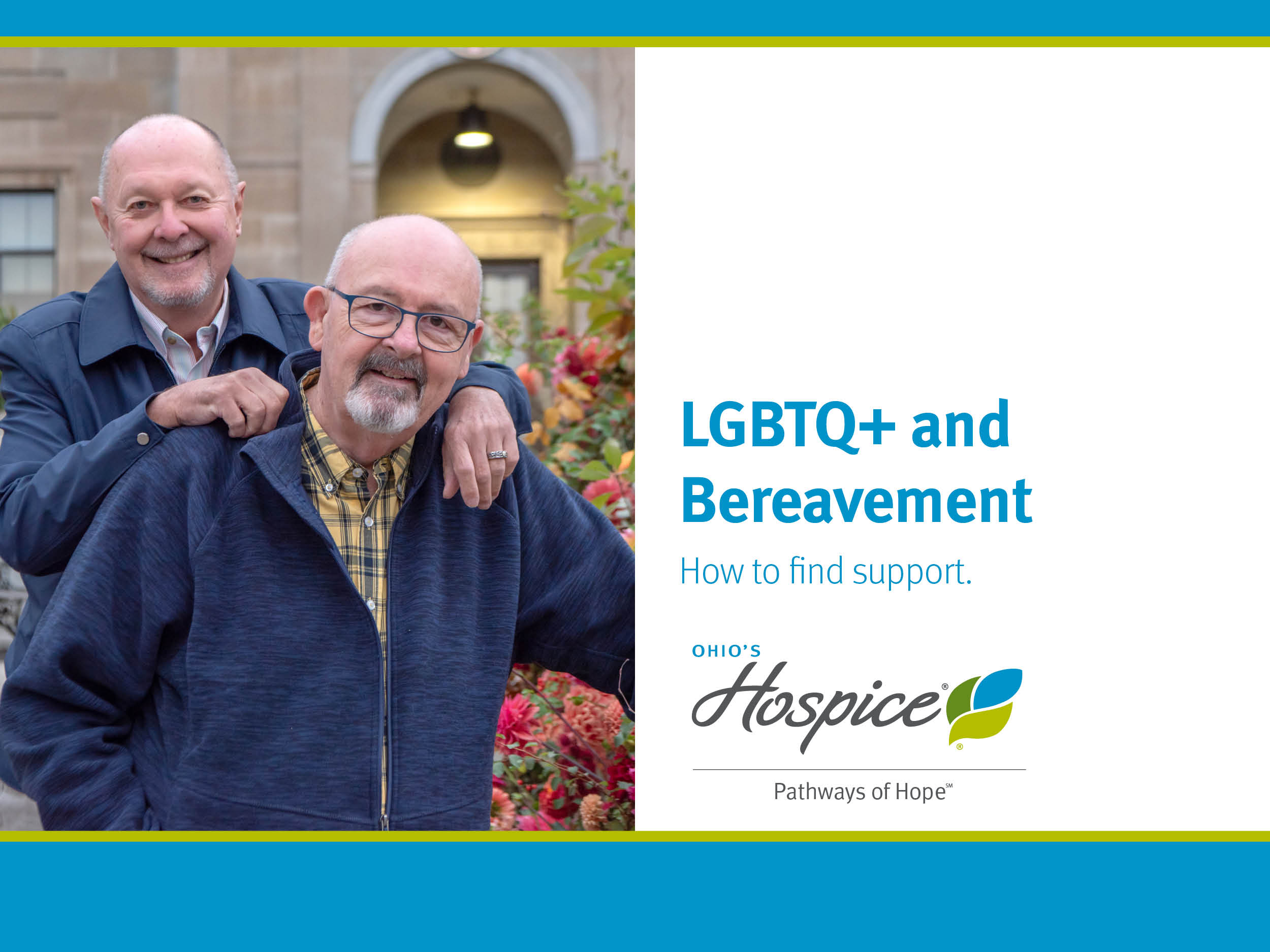LGBTQ+ Loss and Bereavement
Losing a loved one is difficult in the best of situations, even when there is plenty of family, faith community, and social support to accompany the bereaved person on their grief journey. In the time leading up to the death, most people can count on being treated with dignity and respect, and on having their relationships and identity honored by healthcare professionals, funeral home directors, and society at large. After the death has occurred, most take for granted the outpouring of sympathy and support from family, church and employers. However, this is often not the case for Lesbian, Gay, Bisexual, Transgender, and Queer (LGBTQ people) who may face multiple challenges their heterosexual, cisgender counterparts do not.

Many LGBTQ people do not have supportive families or faith communities. Many also have experienced discrimination or mistreatment and may feel the need to “go back in the closet,” hiding who they are and whom they love during times of crisis when support and acknowledgement are needed the most. This can result in a death that was especially difficult and unresolved for both the person who has died and their surviving loved ones. Bereaved LGBTQ people risk experiencing disenfranchised grief in which their ability to express grief openly and honestly and to receive support that recognizes the magnitude of the loss are diminished or absent.
So how do LGBTQ people find the bereavement support they need after the death of a loved one? Reaching out to one’s “chosen” family of LGBTQ friends and straight allies is critical.
LGBTQ individuals should not hesitate to ask for the support they need and to tell people how they can best support them.
An LGBTQ’s family, however they define family, and friends want to know how they can help.
Individuals should talk to their local LGBTQ organization, such as an LGBTQ Community Center or PFLAG (Parents and Friends of Lesbians and Gays), a national support and advocacy organization. Not only can they provide much needed compassion and support, they would also have information about other services and resources for LGBTQ people.
If religion or spirituality are important to an LGBTQ individual, they should look for a faith community or spiritual leader that specifically ministers to LGBTQ people such as a church that is LGBTQ affirming
and inclusive. Conducting an internet search for “LGBTQ affirming churches near me” might yield surprising results with a number of churches listed.
Even though grief is a universal human experience and has been well researched and published, books and resources regarding the loss of a same-sex partner or spouse are sparse in comparison. Although they take a little more work to find, there are good books and research articles available that can provide sound and culturally sensitive information and support. A few of those books are:
- “The Loss of a Life Partner: Narratives of the Bereaved” by Carolyn Ambler Walter
- “Lesbian Widows Invisible Grief” by Victoria Whipple
- “Gay Widowers: Life After the Death of a Partner” by Michael Shernoff
An internet search for “LGBTQ Grief and Bereavement” or a trip to the local library, will provide information about other related books and articles as well.
Support is also available from Pathways of HopeSM Grief Counseling Center at Ohio’s Hospice, which provides inclusive and affirming bereavement support. Please call Pathways of Hope at 937.258.4991 to schedule an appointment with a culturally sensitive and LGBTQ affirming bereavement counseling professional.

